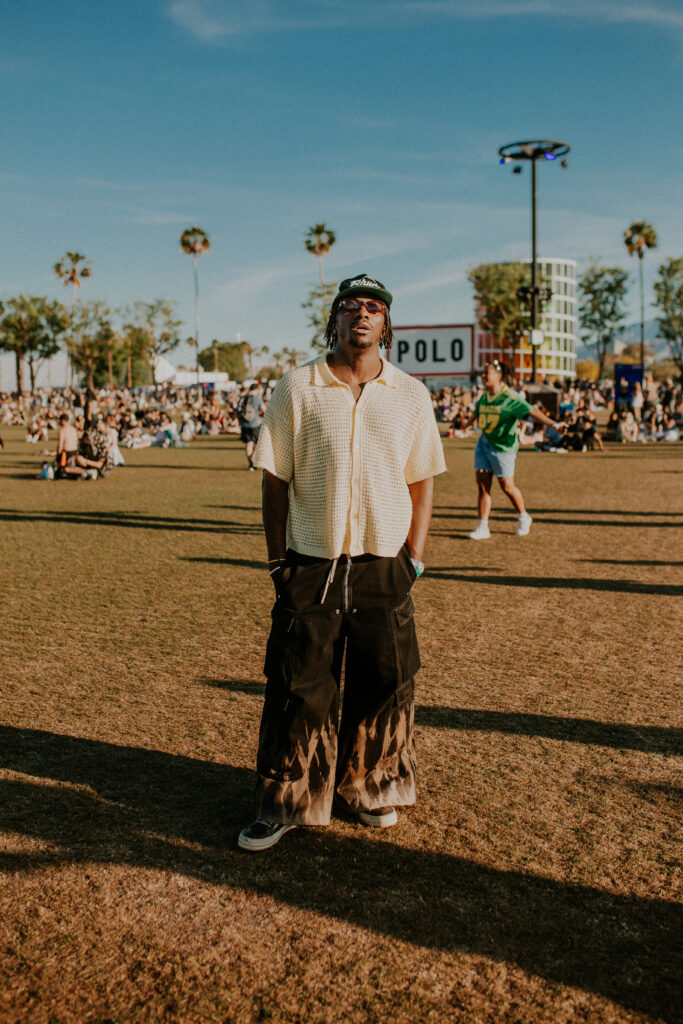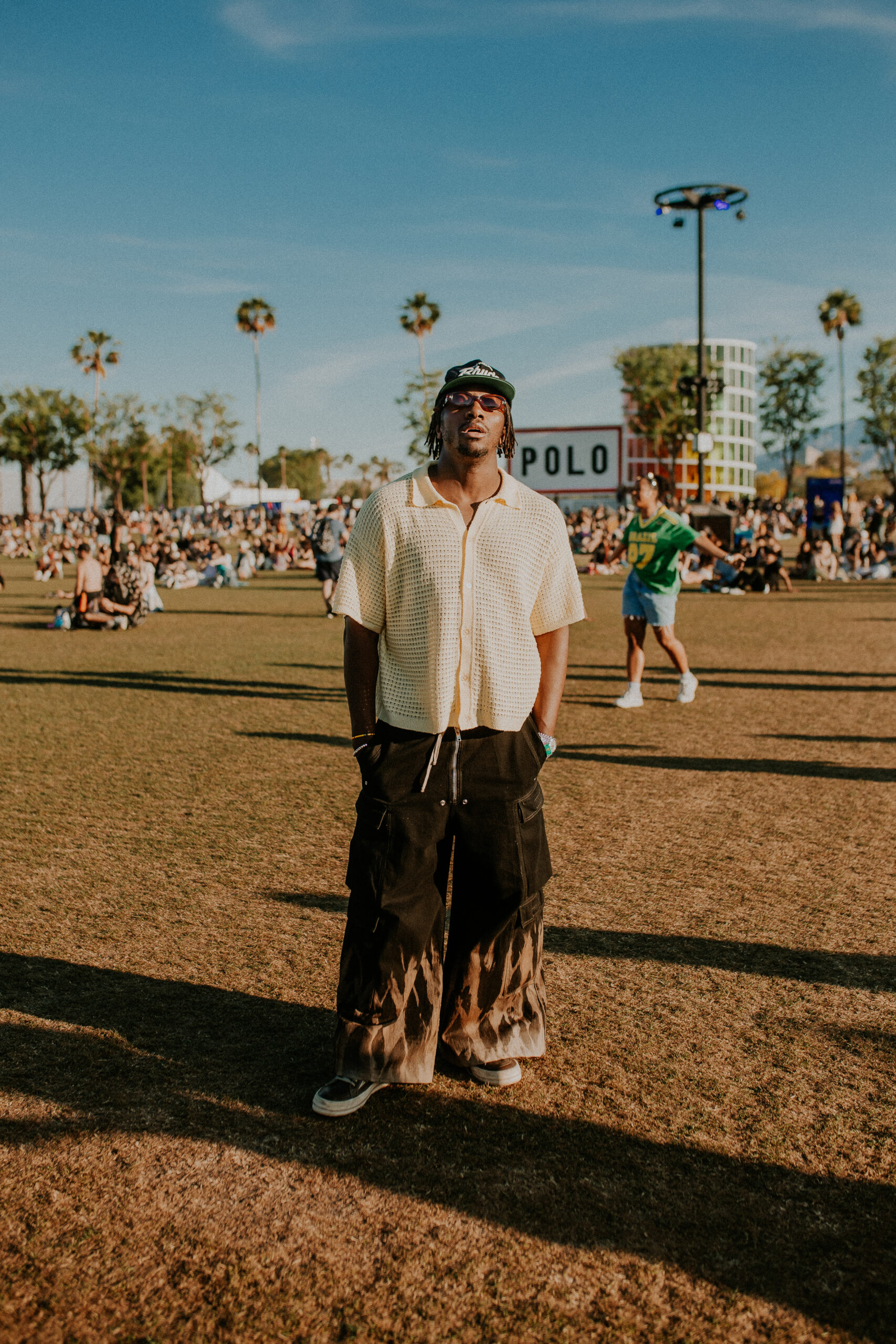“This won’t work, there’s too many drums.”
It’s a sentence AMÉMÉ, born Hubert Sodogandji, has heard time and time again. The Benin-born, Nigeria-raised, DJ and producer makes and plays Afrohouse, a subgenre of dance music that originated in South Africa in the 1990s that combines traditional African rhythms and instruments with the framework of modern house music.
It’s hard to believe he once met resistance, especially now, speaking from his trailer backstage at the Yuma tent, the house and techno stage at the Coachella Valley Art and Music Festival where he’s set to play across the festival’s two weekends. Over the past decade plus, he didn’t pander to requests for something more straight ahead. His sound is still as Afrohouse as ever, but by now, it’s clear industry gatekeepers have caught up.
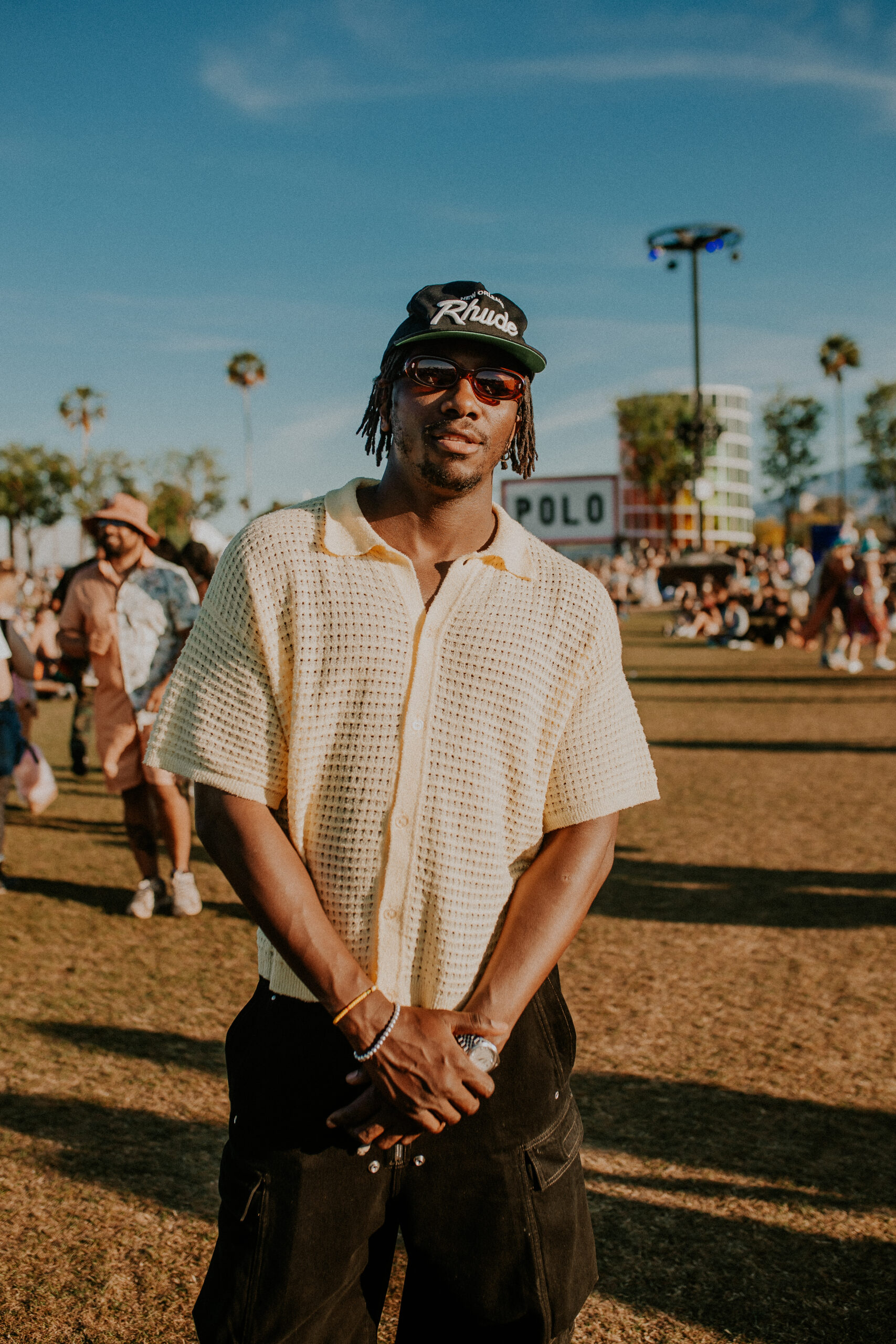
Photography by Wozniak
It’s not AMÉMÉ’s first time at the festival. He played once in 2023 before the subgenre’s international explosion. In 2017, Beatport, the industry standard online marketplace for dance music mp3s, added Afrohouse as a genre. The genre went mainstream in 2022 when DJ and producer Black Coffee took home the Grammy Award for best Dance/Electronic album. This year, a report showed that Afrohouse leapt from 23rd to the 4th most searched genre of the year.
German trio Keinemusik, known for integrating Afrohouse into their headlining festival and megaclub sets around the world, secured a closing slot at Coachella this year. Despite initial skepticism from a white, Eurocentric, dance music industry, AMÉMÉ is not surprised the world finally embraced the genre and his sound.
“Afrohouse has always been the closest thing [in dance music] to pop music because there’s vocals and rhythms are a little bit more organic and a little bit more genuine. Anybody can get lost in it,” he says.
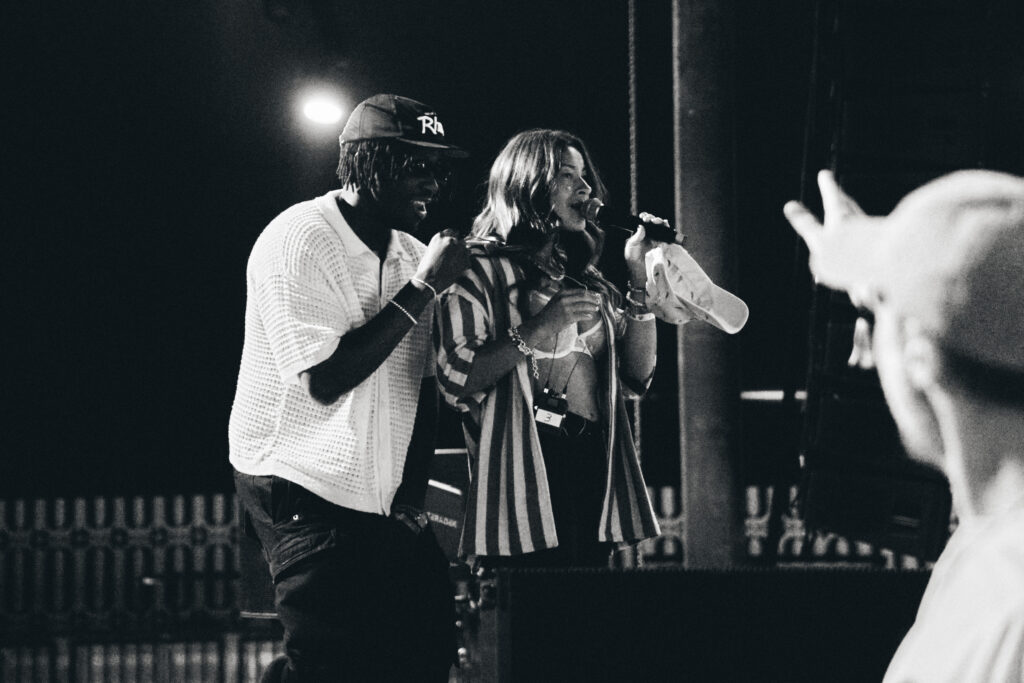
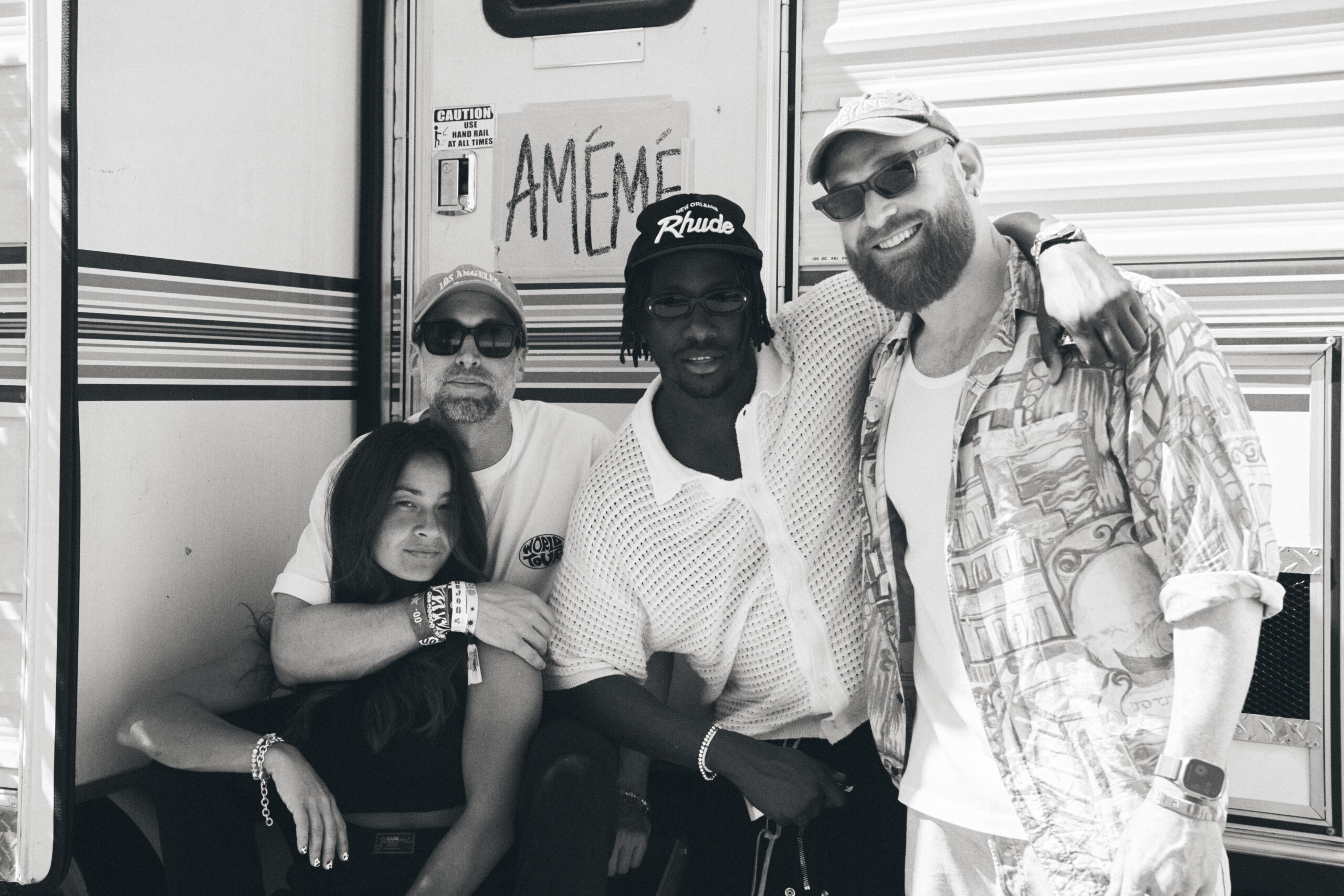
Photography by Jonas Diesing
His original tracks often incorporate memorable vocals, providing a “bridge from Afrohouse to the world” and easy listenability for the genre’s superfans and novices. “Feel the Love,” a collaboration with German duo Andhim and singer Malou, was released on Insomniac Records just in time for weekend two of Coachella.
Mixing up the purist set up of the Yuma, AMÉMÉ invited Malou to lend live vocals to his debut of the song during his weekend two set. 2022’s “Power,” features vocals from Mario Reyes, a shaman he met in the streets of Tulum. After an invigorating conversation about the meaning of AMÉMÉ’s name according to Reye’s indigenous Mexican roots that led to an impromptu chant, AMÉMÉ invited the man back to his hotel room to record him on an iPhone.
AMÉMÉ’s knowledge of dance music and introduction to Afrohouse came via his older brother who traveled to France and brought back CDs and tapes of artists like David Guetta, Justice, and Fedde le Grand. AMÉMÉ grew up in musical theater and was in a rap band with his brother, but says he, like many Africans, initially associated dance music with whiteness. Once he learned about the genre’s black roots—techno in Detroit and house music in Chicago—he was inspired to try his hand at it, DJing for the first time in 2009 and producing his first original track in 2017, releasing his first track in 2019.

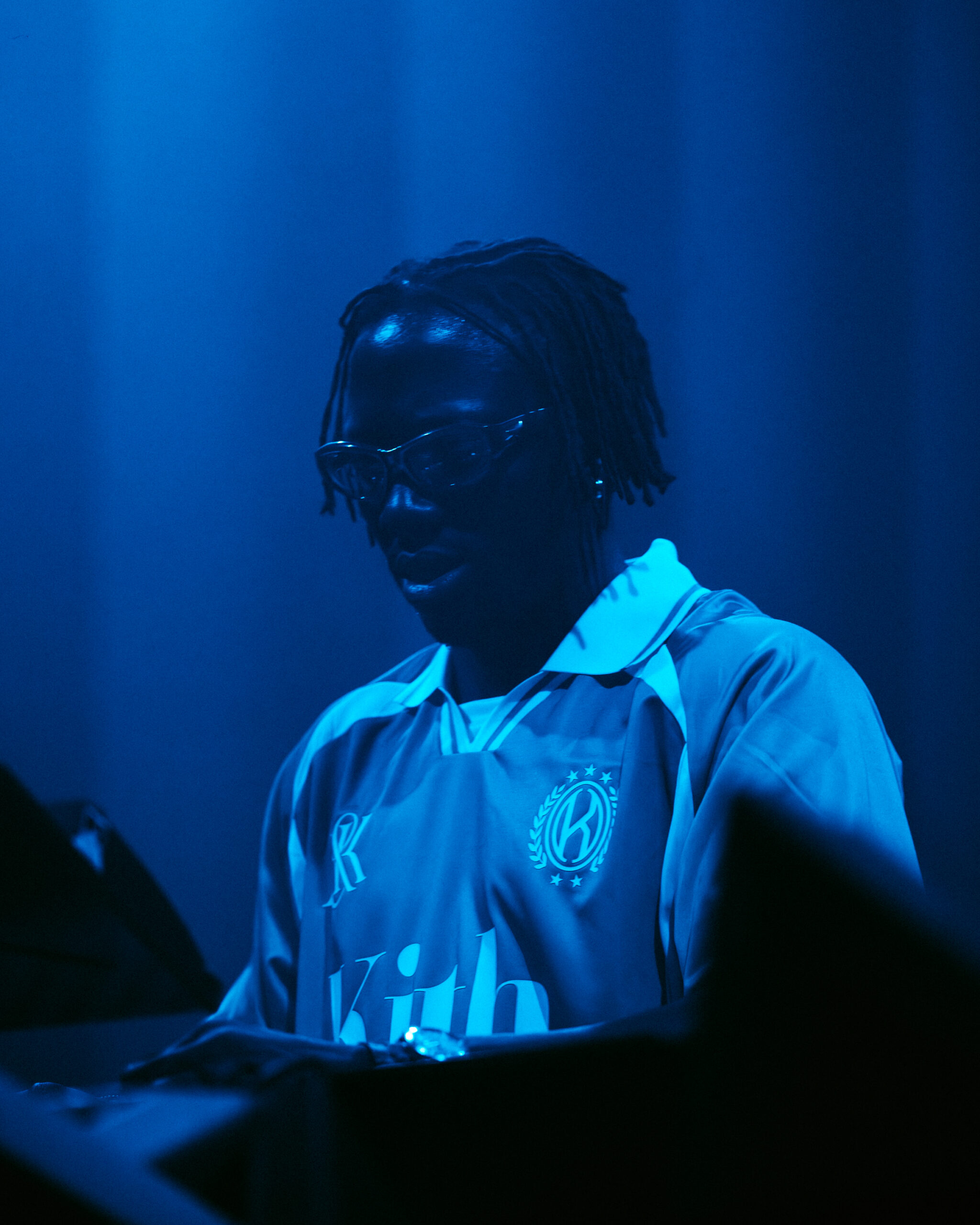
Photography by Sun B Densley
The conversation around who should make—and make serious money making—Afrohouse is bubbling in the dance music community. While some artists and fans believe the genre belongs to the continent and to Black artists, AMÉMÉ doesn’t necessarily agree. “Music is a universal thing. It’s an international tool. If there were only African people doing this, it would be sad. But there’s always ways to give back and pay attention to the social aspect,” he says. He often collaborates with German artists, noting that their practical, near scientific approach to music challenges, but pairs well with his African, sensory, emotion-first style.
Regardless of ethnicity or race of his collaborators, authenticity is a non-negotiable. “Today, it’s especially easy to just copy and paste. I make sure identity is at the center of everything I do,” he says. This also means maintaining a balance between bougie VIP events with big budgets and playing small clubs in cities that may not get many Afrohouse DJs—like his recent all night set at Bar America in Guadalajara, Mexico. “I literally spent money to do that show, but I need that a few times a year, for my soul,” he says.
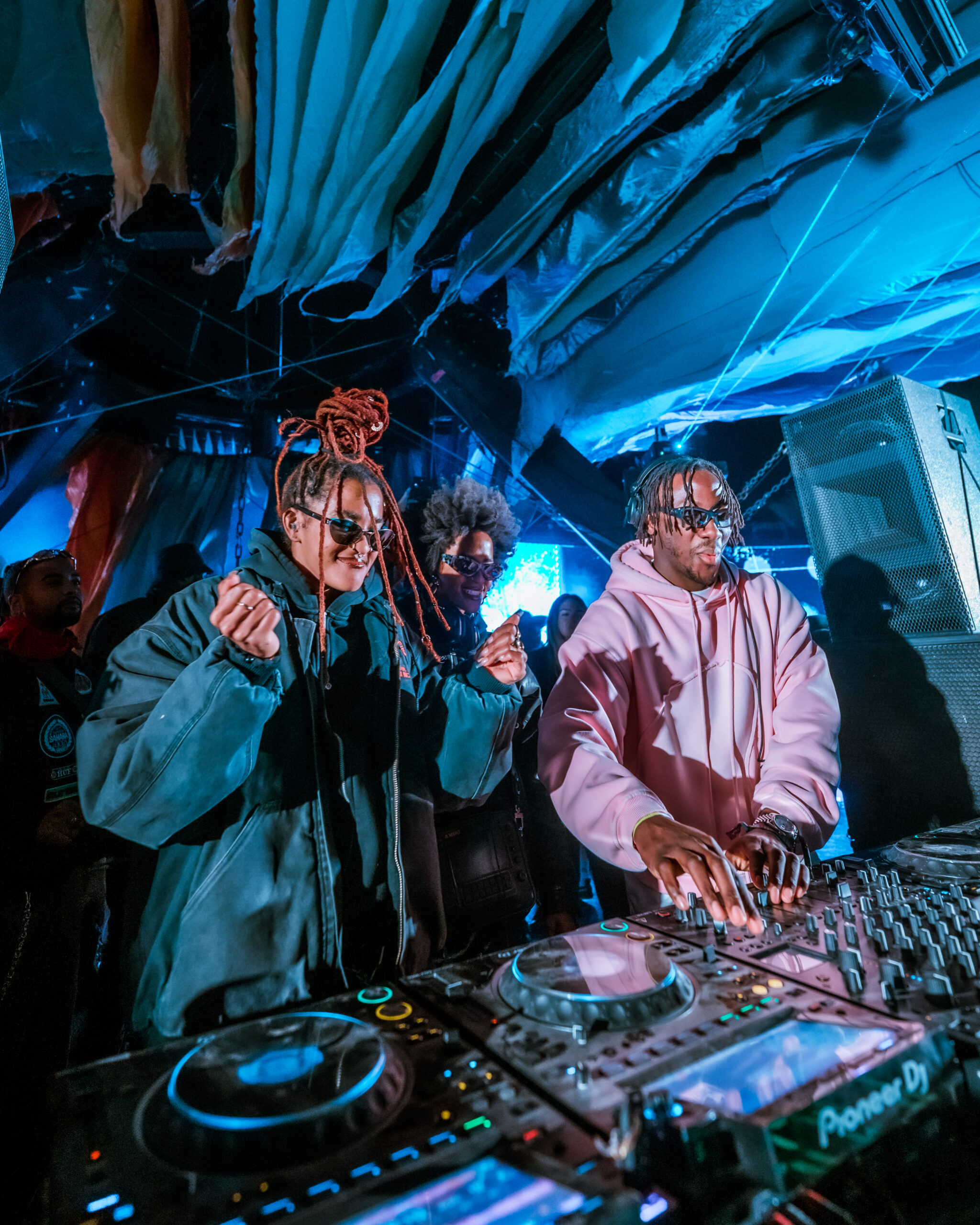
Photography by Jess Gallo
The false beliefs AMÉMÉ once held about Black people’s role in dance music are still prevalent in his community back home. “How come Afrohouse is more popular in Europe than in Africa?” he asks.
“It’s because there’s a misconception that electronic music is a white people thing…it’s just a matter of educating people and making sure they know this is for everyone.” Correcting that stereotype and creating community is what drove the artist to found One Tribe, his record label, fashion brand, and art collective.
One Tribe began as an event series in Brooklyn in 2017. After moving to New York from Benin, AMÉMÉ struggled to get booked to DJ Afrohouse around the city. He approached beloved venue House of Yes, who offered him the less desirable weekend slot, Sunday, to prove himself. It worked. One Tribe became the place to DJ Afrohouse in New York. In 2020, the brand expanded into a record label focused on releasing AMÉMÉ’s own EP “Power” and music from international Afrohouse artists with a goal of “always kicking it back to the continent.”
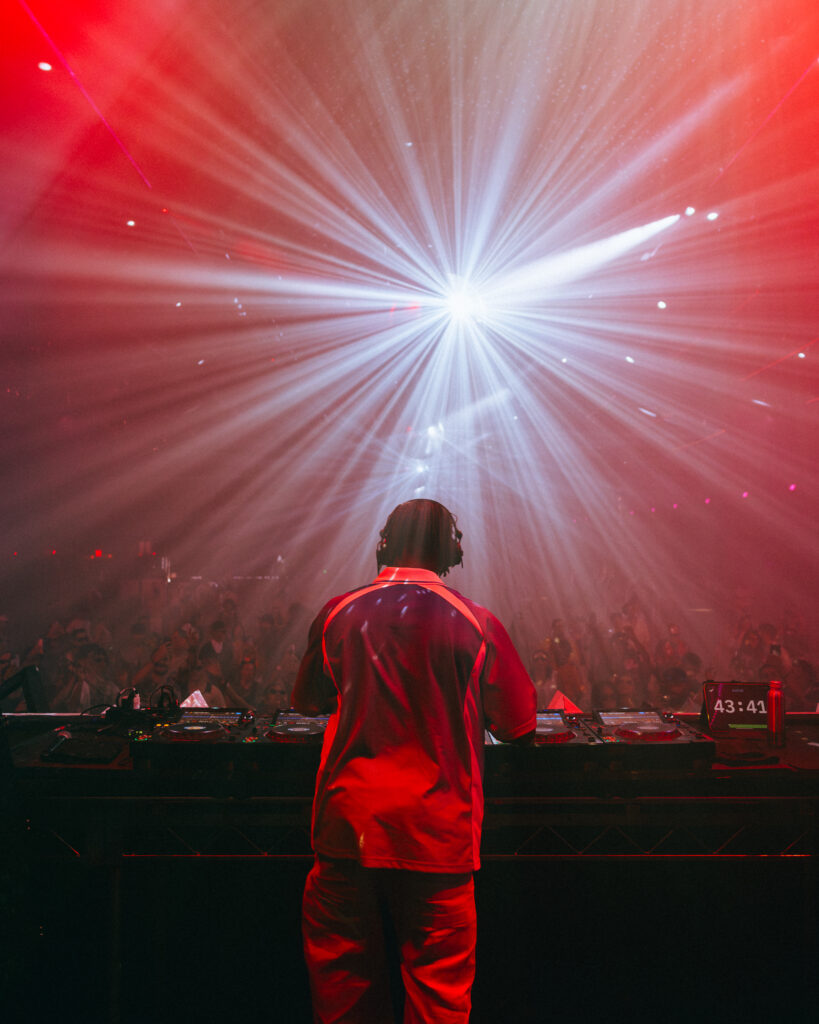
Photography by Sun B Densley
The brand continues to grow and spearhead the genre’s takeover. In 2024, One Tribe relaunched its event series, with club nights in London, Amsterdam, Ibiza, and beyond. More original music is coming, too, with 200 submissions from artists in AMÉMÉ’s inbox every month. The world is catching up to him. Fresh off the heels of Coachella, AMÉMÉ DJed his first Boiler Room set, a goal that’s been on his vision board for years.
He remembers being told the live-streaming and events company wasn’t focused on Afrohouse. But his patience and belief in himself and his sound remained. “Playing in Africa is my way of leading the way by example,” he says of the set, which happened in Lagos, Nigeria on April 26.
“I can’t tell you how emotional I was when I saw my mom’s face when I told her I was going to play Lagos.” He takes his mom’s advice when it comes to talking about what’s next for him. “My mom always tells me don’t speak against your own destiny, but I hope I am at a place where the next generation of African DJs can look at me and say hey, thank you for inspiring us. We can see ourselves in you.”
Discover More
